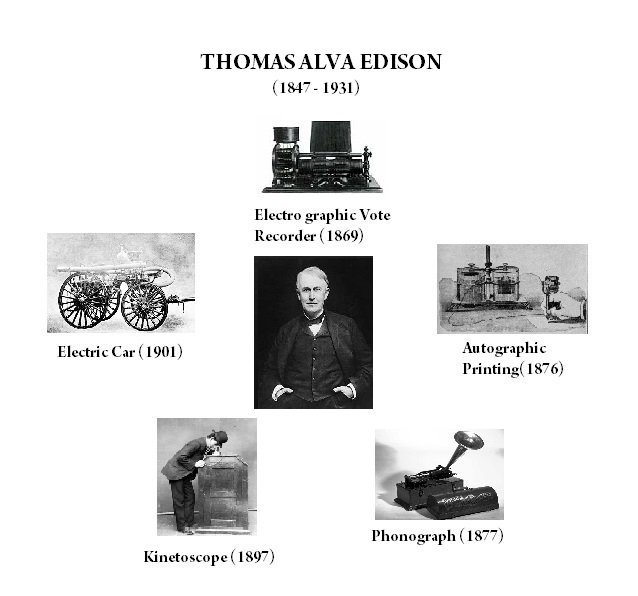Home Schooling in Malaysia – The Alternative Way
by on 02/08/2025 ...

Let us take a look at a story about the great inventor, Thomas Edison, when he was 7 years old:
One day Thomas Edison came home and gave a paper to his mother. He told her, “My teacher gave this paper to me and told me to only give it to my mother.”
His mother’s eyes were tearful as she read the letter out loud to her child: “Your son is a genius. This school is too small for him and doesn’t have enough good teachers for training him. Please teach him yourself.”
After many, many years, Edison’s mother died and he was now one of the greatest inventors of the century. One day he was looking through old family things. Suddenly he saw a folded paper in the corner of a drawer in a desk. He took it and opened it up. On the paper was written: “Your son is addled [unable to think clearly]. We won’t let him come to school anymore.”
Edison cried for hours and then he wrote in his diary: “Thomas Alva Edison was an addled child that, by a hero mother, became the genius of the century.”

Inventions by Thomas Edison
This touching story may be partly fact(Edison was dyslexic and could not talk until he was 4) and partly fiction, but it helps to show that not all children can fit into a rigid school system and when the child’s issues are recognised, home schooling may be a viable option. Where Malaysia is concerned, home schooling has long been an alternative way of educating children whose parents choose not to send them to public schools for reasons such as physical or mental disabilities, health issues, concern whether the right values are being picked up in school, desire for more religious emphasis, frustration with the education system, and so on. However, in 2002, amendments were made to the country’s Education Act 1996 (Act 550) to make primary education compulsory, and parents who do not send their children to primary school found themselves to be on the wrong side of the law.
Although there is a provision for home schooling in the Education (Amendment) Act 2002 where the minister may exempt any pupil from compulsory education, parents say that the exemption is difficult to obtain. To-date, mainly children with chronic health problems requiring close attention by the guardian have been granted exemption. Even children with special needs are finding it difficult with the opening up of classes and schools for special needs by the Ministry of Education. Basically, the conditions for applying for exemption are quite stringent. Among them are: “the applicant must have a professional teaching qualification” and “one of the parents must be prepared to tutor the child at home on a full-time basis”. Many parents cannot fulfil the requirements and have opted not to apply, but to stay below the radar and hope for the best.
Home Schooling Centres – a Growing Trend

Students at Real Scholar Academy revising with classmate.
Home schooling in Malaysia takes a variety of approaches. There are parents that have chosen to fully home school their child following a certain curriculum, while others adopt a mix-and-match approach where the child takes tuition for certain subjects. In recent years, there has also been an increasing number of “home schooling centres” that offer an alternative to parents who cannot fully home school their child themselves. These centres usually use one or more of the home schooling curriculums available today, which often comes together with teaching aids, resource materials and workbooks. Monthly tutorial fees at these centres may range from RM400 to RM550, excluding fees for excursions, camps and sports events.

Daily homework exercises at Alpha Academy
“We took him to see a paediatrician, then a psychiatrist, and he was diagnosed with ADHD. But what next? He was only 10, and an intelligent boy. He needed to be educated. After searching for information on the Internet, we learnt about the various home schooling programmes available. We home schooled him and later on, he went to a home schooling centre to prepare him for his IGHomeschool-EYL-boysCSE exams. He is now studying mass communications in a university in UK,” Chew added.
After meeting other parents in similar situations, Chew decided to set up EYL. The centre uses a curriculum developed in Malaysia by Eduseeds Worldwide, whose 10-year programme prepares students to take the IGCSE exams offered by UK’s Cambridge University. Eduseeds uses a blended mode, i.e. it is both student-centric and teacher-directed – a self-paced learning with supervision by teachers in a computer-based classroom environment. Students are placed in classes not by age but according to their level or ability.
There are also many home schooling centres in Malaysia that are initiated and run by Christian churches using Bible-based curriculums such as ACE, AOP and Sonlight. The number of students at these centres can range from as small as six to about 200. One of these centres is MLS KL Homeschool Centre in Bandar Sri Permaisuri, Cheras, Kuala Lumpur, which has about 120 students. It uses the International Homeschool Programme for Grades 1 to 12, leading to the International Certificate of Christian Education (ICCE), which is accepted by colleges and universities around the world. ICCE recognises and encourages a high standard of academic achievement according to the student’s abilities. Unlike Eduseeds, MLS KL’s syllabus is not computer-based.
MLS KL principal, Pastor Joseph Loh, said, “Parents enrol their children here mainly because they want them to have more individual attention. Classes in public schools are so big that teachers cannot afford the time to focus on individual needs. Also, year after year, students are automatically promoted to the next grade without considering whether they are suitable for that level. Some children cannot keep up with the lessons while others find the pace too slow. The result is the same: the child loses interest in school altogether and disciplinary problems start popping up. At our centre, we go according to the pace of the child. We even have fast learners who finish two grades in one year.” The centre also accepts children with special needs such as mild autism, ADHD, dyslexia, and short memory retention. These classes have fewer students per class so that more attention can be provided by teachers who are trained in special education.

Sports day event at Cranbridge Learning Centre
Recently, a learning centre that has a home schooling programme focusing on children from 5 to 11 years old, opened its new and bigger premises in Jalan Gasing, Petaling Jaya. Learning Fresh uses the UK curriculum and is known for its strong support for parents and the child. After talking to the parent(s) and assessing the child, a customised path is planned. Learning Fresh’s Managing Director, Melissa Liew, says, “We are looking at the development of the whole child, not straight A’s. Every child needs a secure and safe environment to learn and should not be pushed into learning things when he/she is not ready. Learning must be a positive experience. Our classes are kept small and, although there is a structured routine, we can plan our time in such a way that we are able to pluck a child out from a class for a personal session to meet his/her particular needs. That’s why our fees are slightly higher than other home schooling centres.”
“Even gifted children, although they are way ahead in terms of learning, have issues. It can be issues such as not being able to interact socially or misbehaviour. When it comes to discipline, children need boundaries where they feel safe. When a child misbehaves, he/she is asked to reflect on what happened. There’s a special sensory room where the child is allowed time to calm down and to reflect. After that, the teacher discusses the issues with him/her. Parents are provided notes on a daily basis on things that happen as well as the progress of the child. We do this so that we can work together with parents to reinforce whatever has been taught here,” explains Liew. Indeed, such personal attention will be difficult to find in any public school.
Conclusion
Where education of the child is concerned, parents want the best they can provide for their child and their child’s future. Whatever regulations are put in place or enforced by the authorities, if a child’s needs cannot be met by the public school system, parents will turn every stone to look for the best path for their child’s education. Today, if full home schooling is not possible, parents have the option of sending their children to the increasing number of home schooling centres available.
Contact: Home Schooling in Malaysia – The Alternative Way





















